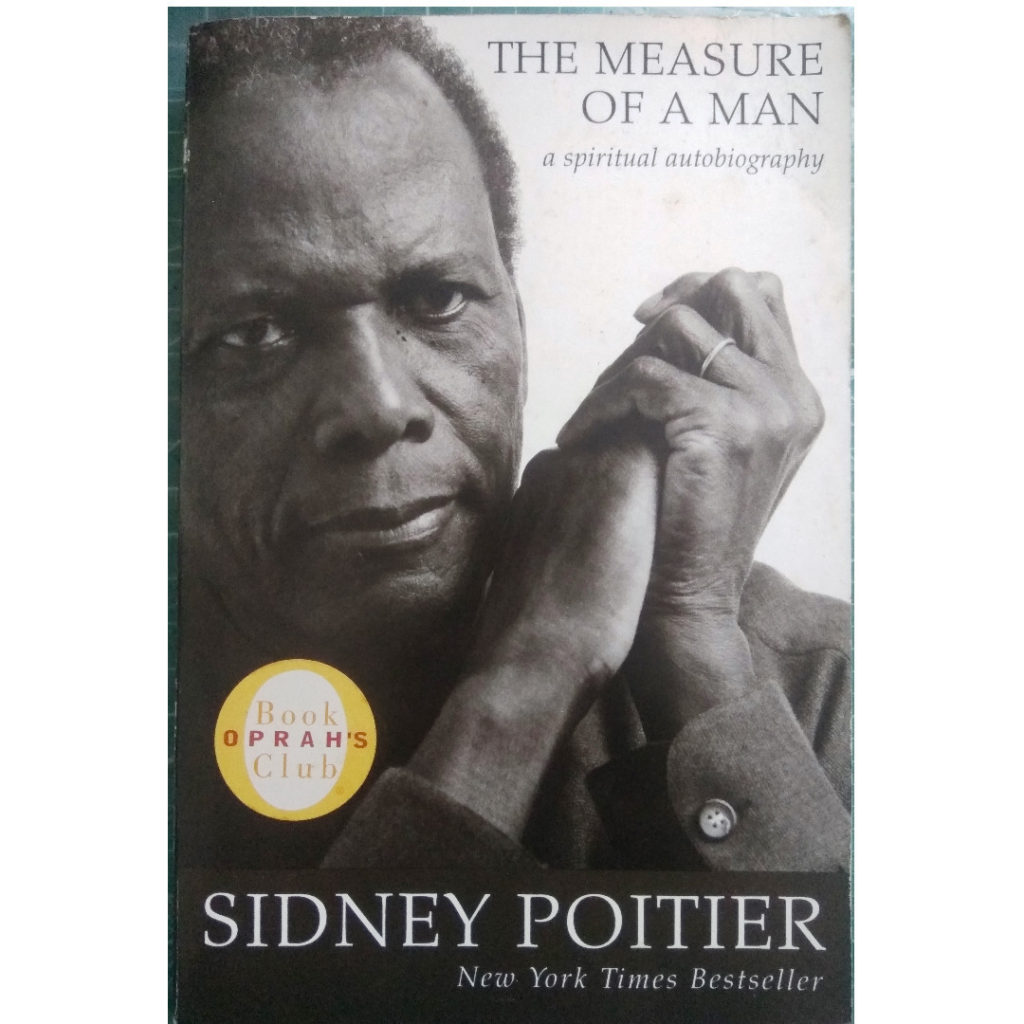The Measure of a Man
Written by Kristy Dolson
When I went back to Canada during a brief pause in my teaching career, my mother introduced me to the classic movie To Sir, With Love. Our local library had a DVD copy. For those who do not know it, the movie stars Sidney Poitier as a young black man from British Guiana who immigrates to London in the hopes of getting an engineering job. Unfortunately, the application process takes longer than he expected, so in the meantime he secures a teaching job at a school in the East End, which is notorious for badly behaved students. It is a touching movie about a teacher and his students earning each other’s respect, despite outside social and racial forces working against them.
Sometime after watching the movie, I noticed that my mother had one of Sidney Poitier’s memoirs, The Measure of a Man: A Spiritual Autobiography, on her bookshelf. Intrigued, I took it down and packed it up to bring back to South Korea with me. Sorry, Mom! I will return it, I promise!
But it took a long time for me to get around to reading this book. I had noticed it back in 2017 and it sat, patiently, on my shelf all through 2018. And then the New Year came.

Even though it has just begun, 2019 has been a rough year for me. A former co-worker was diagnosed with brain cancer, my uncle died from a sudden heart attack, and a KOTESOL colleague suddenly passed away with no warning. And those are just the intimate, personal losses – to say nothing of the chaos to be found in the greater world. This “spiritual autobiography” about a man who came from very humble beginnings and rose through adversity, cruelty, and indifference to achieve the ultimate satisfaction within his chosen profession was a welcome and much-needed restorative.
Poitier was born into poverty on Cat Island, an idyllic paradise in the Bahamas. His formative years involved running, climbing, swimming, and testing his limits without the usual restrictions set by society. When his family moved to Nassau, his social education began, but his strong sense of self and courageous personality had already been set. When he left the Bahamas for Florida at 15, this identity could not be shaken loose no matter what American social and political attitudes – not to mention laws – threw at him. Whether he was being pursued by racist cops in Florida, getting doors slammed in his face in Harlem, or being asked to sign loyalty contracts in Hollywood, Poitier always knew who he was and where he came from. While he did not know exactly where he was going, he always challenged himself to be better. Along the way, he learned a lot about life, love, and loyalty.
This autobiography has a lot going on. I took so many notes and reflected on so many threads and themes running through its pages. The big, obvious ones were Poitier’s internal struggle to accept and embrace his “outsider” identity, the anger he felt at America’s racist politics and his external struggle to overcome it, and the darkness that lives inside each and every one of us waiting to be triggered. But the smaller ones resonated with me even more strongly: his anecdotes about becoming a great actor, perfecting his craft over a lifetime of trial and error, and the awareness of always being onstage as a black man in a divided social and political atmosphere. As a native English speaker who has a serious investment in becoming a great teacher and an agent of change in South Korea, I took a lot of encouragement from his reflections.
What really stood out about the book was Poitier’s unique voice. He wrote in a gentle, intimate style and used a calm and nurturing voice. A voice that will explain something to the reader and then ask, “You follow?” There are many of these question tags throughout, and they recreate a conversationalist tone. But that does not mean the voice cannot get angry. There are passages that bubble with a lifetime of rage at injustice and indifference, and Poitier was not afraid to use occasional profanity to get his emotions across. It is not quite the searing hatred of Bourdain, but it is justified anger, and it had me thinking about my place in the oppression hierarchy. I was not and am not proud of myself.
His continual drive towards improvement pushed him forward into a life of dizzying success: He was the first African American to win an Oscar for best actor. But this accolade did not fool Poitier; he knew there was still more work to be done before Hollywood would be more open and celebratory of minority workers and voices at all levels of the entertainment industry. And he was right. The world has not changed all that much, for we have been lulled into complacency and low-risk for too long. Recent controversies and scandals surrounding how movies are cast, who is directing them, and who controls the prestigious awards apparatus just demonstrate how much further there is to go. We must gather our courage, rally the forces, and take positive action if we want to make the world a healthier and more inclusive place for the generations to come.
The Author
Kristy Dolson lived in South Korea for five years before taking a year off to travel, read, and spend time with her family in Canada and Australia. She holds a Bachelor of Education and now lives in Yeosu, where she splits her time between teaching at the new Jeollanamdo International Education Institute and reading as much as she can.





